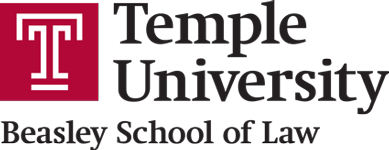Education Through Service
Temple Low Income Taxpayer Clinic is an academic clinic at Temple Beasley School of Law. Our mission is to assist low-income and non-English speaking taxpayers through Representation, Education and Advocacy. Simultaneously, we are training the next generation of attorneys who are learning by doing.
For Students:
The Low Income Taxpayer Clinic (LITC) provides free legal representation to qualifying taxpayers who have federal tax controversies. Students and attorney volunteers, working under the supervision of Professor Omeed Firouzi, represent low income taxpayers before the Internal Revenue Service and the U.S. Tax Court in audits, appeals, collections and federal tax litigation.
Students enrolled in the clinic (4 credits, graded) benefit from class instruction during which they learn substantive and procedural tax law, case management, and lawyering skills. Students also give presentations to community groups and nonprofit organizations to help taxpayers know their rights and responsibilities. Additionally, students may have an opportunity to participate in special projects such as filing amicus briefs or submitting comments on proposed regulation or other administrative guidance.
During the clinic portion of the course, students serve as the primary advocates for their clients and have direct responsibility for their cases. Case work includes extensive client contact. Students will conduct factual investigations and research legal issues to develop, present, and argue cases on behalf of vulnerable taxpayers who would otherwise not have access to justice. The clinic experience teaches lawyering skills applicable across numerous practice areas. Student are encouraged to enroll whether they have an existing interest in tax or simply seek an immersive law practice experience. LITC students play a crucial role in ensuring a fair tax system for low income individuals and those with limited English proficiency who speak English as a second language. Students’ work is impactful and sometimes life changing.
For Potential Clients:
Temple LITC represents eligible taxpayers in disputes with the IRS for free. This includes assistance with:
· Audits
· Collections
· Liens & Levies
· Innocent Spouse & Injured Spouse
· Litigation in Tax Court & District Court
· ID Theft & Preparer Fraud
· Worker Misclassification
The LITC does not prepare tax returns or applications for ITINs. For these services, please consult VITA instead.
Taxpayer eligibility for free services is based on income, family size, and the amount(s) at issue. The Clinic’s ability to take on new cases is also dependent on student availability and a preliminary assessment of the matter. The Clinic Director makes representation decisions following a student’s analysis of the issues and recommendation. Although Temple receives funding from the IRS to help with the costs of the Clinic, the Clinic, its employees, and its volunteers are not affiliated with or endorsed by the IRS or its employees. Representation by the Clinic will not result in the IRS giving preferential treatment to the taxpayer nor will it diminish the taxpayer’s rights before the IRS.
Language services:
We have in-person Spanish and Farsi language services. For other languages, we use the Language Line phone interpretation services.
Our contact information to inquire about services is:
Temple Low Income Taxpayer Clinic
1719 N. Broad Street Philadelphia, PA 19122
Phone: (215) 204-8948
Fax: (215) 515-6234
Email: TaxClinic@temple.edu
Director: Omeed Firouzi
Assistant Director: Sherlyn Martinez
